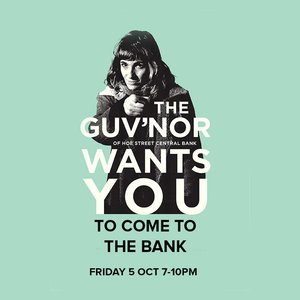Who we are & why we’re bringing this project to life.
As a filmmaker, I was very intrigued by the group and went out to visit them in New York, part funded by the Guardian newspaper. This was the beginning of the Bank Job project.
After a degree in history at UCL and The Sorbonne Paris IV, I had worked for Channel 4 making documentaries and animation and had directed one feature film How to Re-Establish a Vodka Empire, with my partner artist Hilary Powell.
In Bank Job I was again joined by Hilary. After graduating in fine art from The Ruskin, Oxford University, Hilary did her MA at St Martin’s and then followed it up with a PhD at Goldsmiths. Her imaginative work has been collected by the V&A and MoMa New York. She’s been fascinated by community based actions and interventions – and perhaps it was natural that our work would come together at some point.
As we read more and more, and interviewed more and more people, our perspective on economics changed. We felt we were seeing behind the curtain of our contemporary financial system for the first time.
Then Christopher Hird joined the team. He had executive produced How to Re-Establish a Vodka Empire and had experience in documentaries dealing with economics – such as The Flaw which was about the 2008 crisis – and which played at the prestigious Sundance Film Festival – and also The Divide, which was a more recent documentary based on a popular economics book called The Spirit Level.
Perhaps most relevant to this project was Christo’s involvement in the production of The End of the Line, which was a film about the world’s fish stocks, involving a partnership between the filmmakers and Greenpeace. The film had made a measurable difference to the way people purchased and consumed fish, changing the buying policies not only of right minded private fish lovers but of whole restaurant chains, including Pret a Manger. We decided we really wanted to take a similar impact oriented approach to filmmaking and art production and apply it to the subject of Debt. The project was born.
Through our documentation of buying up and destroying debt on the secondary market, we hope we will change public attitudes and shape the debate both on personal and public levels of debt in our contemporary societies. If we can help to guide the public conversation then we will feel our true work is done.







